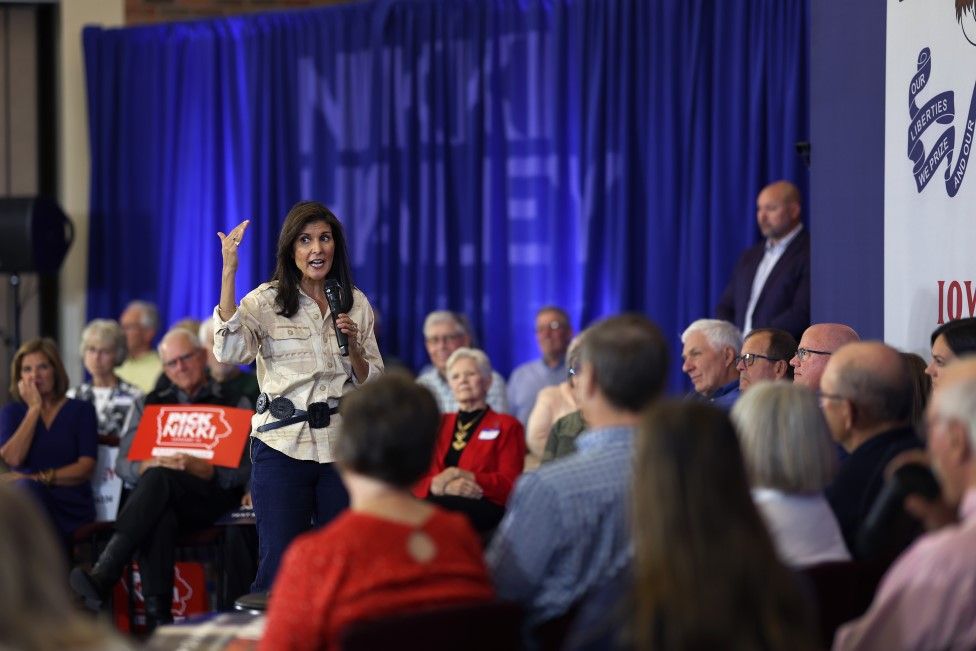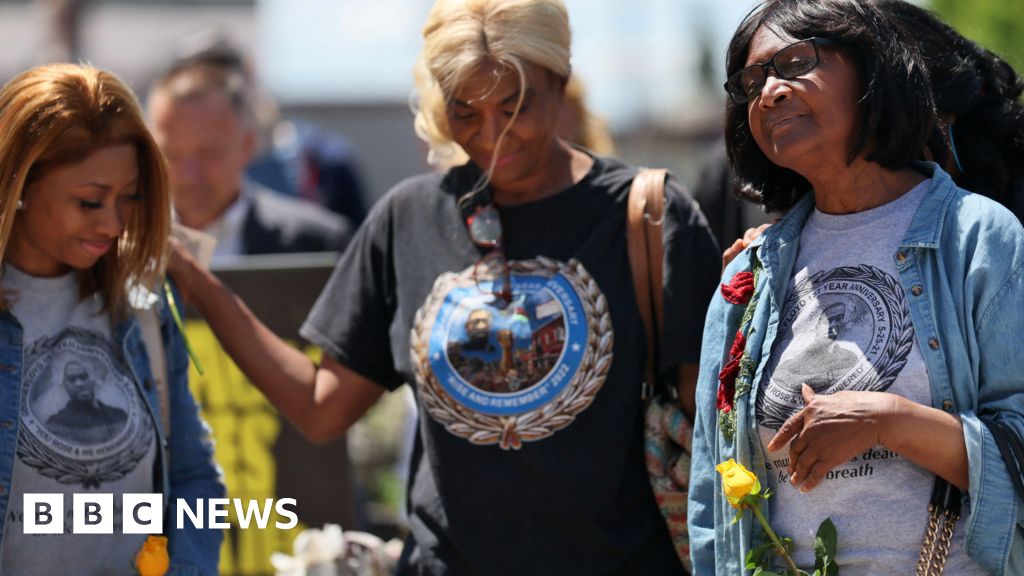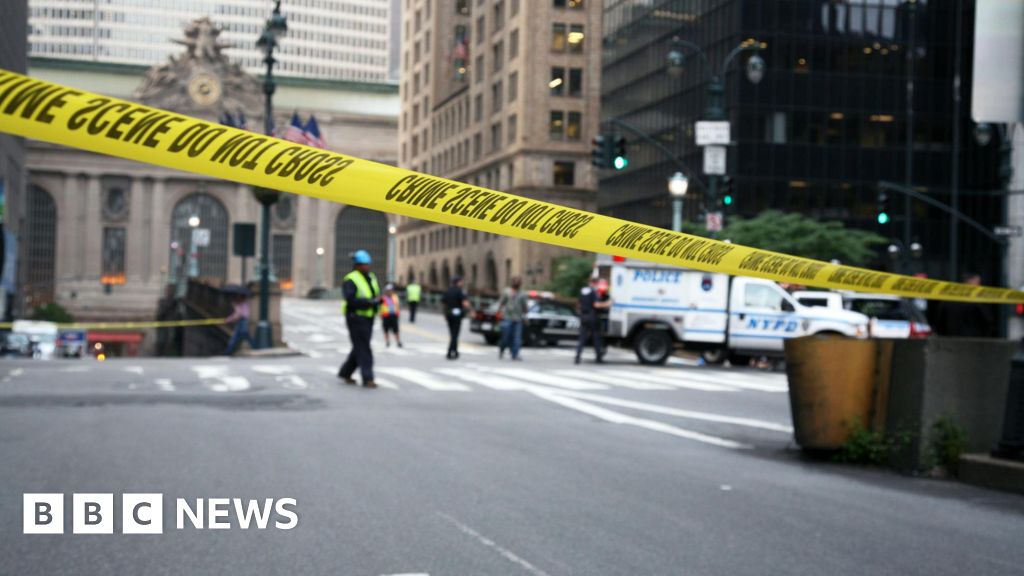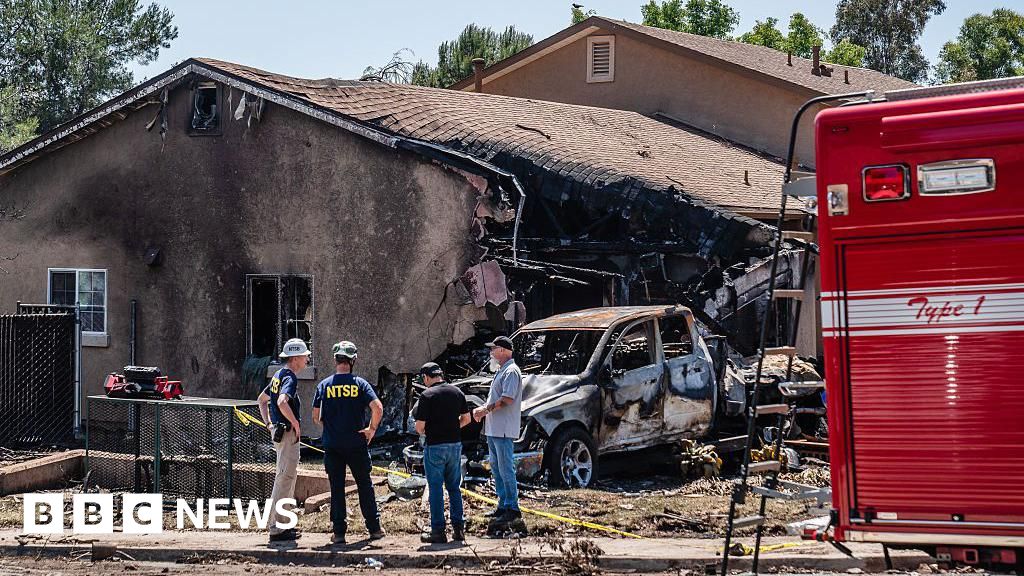ARTICLE AD BOX
 Image source, Getty Images
Image source, Getty Images
Nikki Haley at Central College, Pella, Iowa
By Bernd Debusmann Jr
BBC News, Iowa
The first leg of the Republican race for the White House is just weeks away in Iowa and Donald Trump has what seems an insurmountable lead. But could the millions of dollars his rivals are still spending overhaul him?
When Marlys Popma stepped through the doors of a community college in Newton, Iowa, on a bitterly cold morning last week, she did so as an undecided voter.
But when she emerged an hour later, she was determined to vote for Nikki Haley.
The Republican activist's mind was changed by a short speech the former UN ambassador made to a small gathering in a conference room, underlining her competency and empathy.
"Be bold," Ms Popma, an influential former party official, told her fellow Republicans in the room after telling them, to applause, that she was backing Haley.
She also made a thinly veiled reference to Donald Trump's commanding lead in the polls.
"Don't be afraid to support the person you want to support [just] because you think that somebody else is going to win," said Ms Popma.
On 15 January, Republican voters will meet to support a presidential candidate in the Iowa caucuses, the first real-world test for those vying to secure the party's nomination ahead of the 2024 election.
One poll last week by Iowa State University found that 54% of likely caucus-goers picked Mr Trump as their top choice, compared with 18% for Florida Governor Ron DeSantis, 12% for Ms Haley and just 6% for biotech millionaire Vivek Ramaswamy.
Image source, Getty Images
Image caption,Trump speaks to hundreds in Fort Dodge
In an effort to close the gap, the candidates have kept up a gruelling campaign schedule, spending millions and making hundreds of stops across Iowa, in venues large and small, from churches and schools to farms and hotels.
Mr DeSantis has set aside $3.3m (£2.6m) to spend on advertising in Iowa between November and the vote, compared with $3.5m by Ms Haley and an eye-watering $8m pledged by the Ramaswamy campaign, although it has so far only booked $162,000 in broadcast and digital ads, according to Adimpact, a media tracking firm.
At four campaign events last week, voters told the BBC everything could change. "There's a lot of undecideds here," says Ms Popma. "I think the number of undecideds in Iowa is actually huge."
At a forum in Des Moines held by influential Christian organisation The Family Leader, pastor and social worker Philip Herman says voters are open to hearing more, even as election day in Iowa nears.
"I think the gap is going to close tremendously… I think what I want to see is these candidates play the long game."
More on US election
Mr Trump chose not to attend the Family Leader forum and has maintained a relatively light campaign schedule, something noted by locals and opponents.
"They expect him to earn their votes," Iowa Governor Kim Reynolds, who has endorsed Mr DeSantis, told reporters at the opening of a DeSantis campaign office in Urbandale. "He's just not doing it".
Travis Gilson, a resident of the nearby town of Grimes, tells the BBC that the former president's absences have led some in his social circle to look at other candidates. "That's a big mistake. We take pride in being the first-in-the-nation caucus state."
"We expect people to come out and shake hands, meet with people," he adds, gesturing at the crowd of 30 or so Iowans who had come to meet Mr DeSantis and his family in Urbandale. "You need to be at those small-town restaurants, the events, the parades, all that stuff."
Bolstered by his strong poll numbers, Mr Trump has said there is "no way" that Iowa votes against him.
A victory at the Iowa caucuses, however, by no means guarantees the nomination. Mr Trump's victorious White House run in 2016 began with second place to Ted Cruz. In 2012, eventual nominee Mitt Romney was edged out by Pennsylvania Senator Rick Santorum.
Image source, Getty Images
Image caption,Ron DeSantis in Des Moines two weeks ago
But Iowa's place on the calendar as the first major state-wide vote in the presidential primary campaign gives it an outsized importance in US politics, despite low turnout and a largely white, rural population that is far from representative of the wider US.
It will effectively serve as a starting whistle to the 2024 race and a first, if narrow, glimpse at the mood of voters.
"It's entirely about the calendar," said Rachel Paine Caufield, a professor of political science at Drake University in Des Moines. "It's important because it's the first. It's not first because it's important."
Candidates that fare poorly in Iowa are much more likely to drop out of the race. Conversely, a strong performance - even one that doesn't result in first-place - could potentially inject momentum into the campaigns.
"Ultimately it's about narrowing, or winnowing, the field and signalling to the rest of the country that these are the candidates we think have been particularly effective in attracting support," Ms Caufield added.
The dominance of Mr Trump is reflected in the huge crowds that attend his campaign events in Iowa.
All three events held by his rivals were more intimate, offering an opportunity for interaction with the candidates. Mr DeSantis and Ms Haley's were attended by a few dozen, mostly older people, many of whom said they had attended various events for the different candidates.
In the case of Mr DeSantis, there was a strong contingent of military veterans wearing hats and shirts identifying them as former service members.
While Mr Ramaswamy's event last week was slightly smaller, it attracted an energetic and noticeably younger and more diverse crowd. Some attending told the BBC they had seen him several times across Iowa and would not be swayed from supporting him, even if he remains far behind his competitors.
Image source, Getty Images
Image caption,Vivek Ramaswamy in Iowa City
"I enjoy hearing him., He seems to be a good guy…. I like the person he presents himself as being," Sam McDonald told the BBC from the back of the room. "I have listened to everybody already, and it would take something pretty strong to change my opinion."
Doug Heye, a Republican strategist and former advisor to the Iowa Republican Party, told the BBC that while Mr Trump is virtually guaranteed to come in first place, even a narrower than expected loss to Mr Trump would help the other candidates "stay alive" and inform the US whether or not there is an alternative to Trump.
"If Trump gets 65% of the vote, then clearly that answer is no", he said. "If it's significantly different, that tells us something different."
The remaining weeks of the Republican campaigns in Iowa, residents are quick to mention, could still create some surprising results.
"Iowans are fickle," said Terry Rich, a Republican activist in Iowa's Dallas County, a largely rural area to the west of Des Moines.
"A lot of people are still holding their decisions close to the vest, and that's what's going to make the caucuses exciting."

 1 year ago
38
1 year ago
38








 English (US) ·
English (US) ·